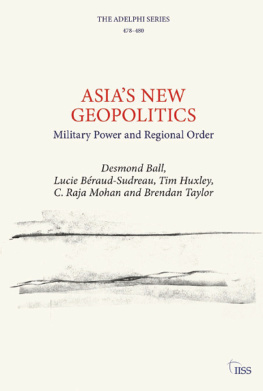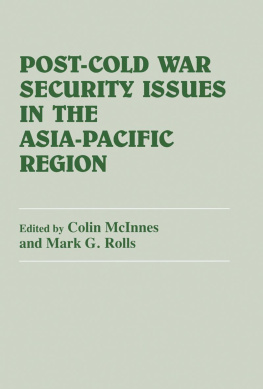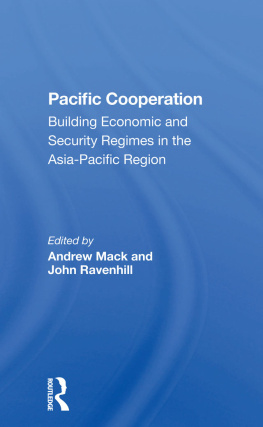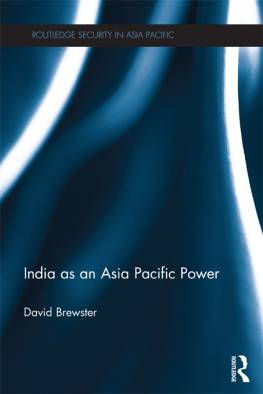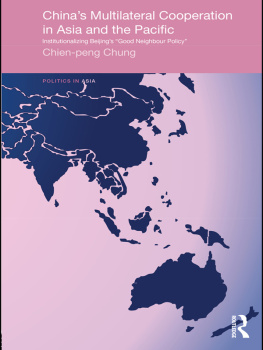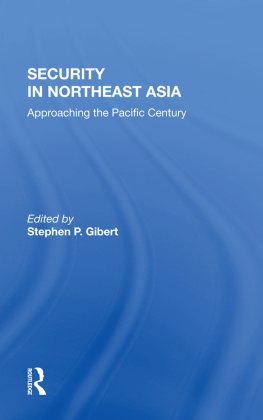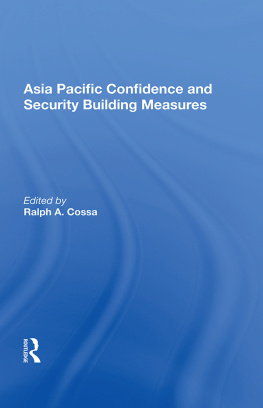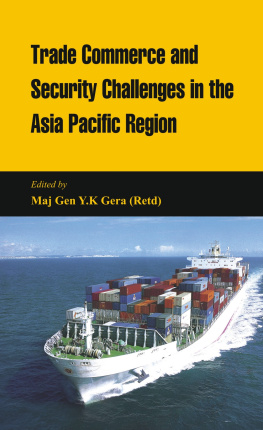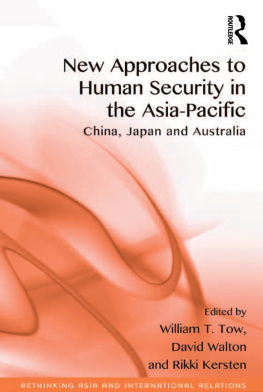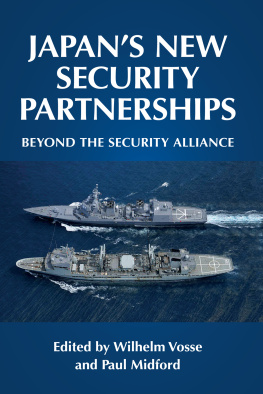Desmond Ball - The Transformation of Security in the Asia/Pacific Region
Here you can read online Desmond Ball - The Transformation of Security in the Asia/Pacific Region full text of the book (entire story) in english for free. Download pdf and epub, get meaning, cover and reviews about this ebook. year: 1996, publisher: Taylor & Francis, genre: Politics. Description of the work, (preface) as well as reviews are available. Best literature library LitArk.com created for fans of good reading and offers a wide selection of genres:
Romance novel
Science fiction
Adventure
Detective
Science
History
Home and family
Prose
Art
Politics
Computer
Non-fiction
Religion
Business
Children
Humor
Choose a favorite category and find really read worthwhile books. Enjoy immersion in the world of imagination, feel the emotions of the characters or learn something new for yourself, make an fascinating discovery.

- Book:The Transformation of Security in the Asia/Pacific Region
- Author:
- Publisher:Taylor & Francis
- Genre:
- Year:1996
- Rating:4 / 5
- Favourites:Add to favourites
- Your mark:
- 80
- 1
- 2
- 3
- 4
- 5
The Transformation of Security in the Asia/Pacific Region: summary, description and annotation
We offer to read an annotation, description, summary or preface (depends on what the author of the book "The Transformation of Security in the Asia/Pacific Region" wrote himself). If you haven't found the necessary information about the book — write in the comments, we will try to find it.
Desmond Ball: author's other books
Who wrote The Transformation of Security in the Asia/Pacific Region? Find out the surname, the name of the author of the book and a list of all author's works by series.
The Transformation of Security in the Asia/Pacific Region — read online for free the complete book (whole text) full work
Below is the text of the book, divided by pages. System saving the place of the last page read, allows you to conveniently read the book "The Transformation of Security in the Asia/Pacific Region" online for free, without having to search again every time where you left off. Put a bookmark, and you can go to the page where you finished reading at any time.
Font size:
Interval:
Bookmark:
OF SECURITY IN THE
ASIA/PACIFIC REGION

FRANK CASS & CO. LTD.
2 Park Square, Milton Park,
Abingdon, Oxon, OX14 4RN
FRANK CASS
270 Madison Ave,
New York NY 10016
Desmond Ball.
p. cm.
this group of studies first appeared in a Special issue on The
transformation of security in the Asia/Pacific Region of The Journal
of strategic studies, vol.18, no.3--T.p. verso.
Includes bibliographical references and index.
ISBN 0-7146-4661-X (cloth).--ISBN 0-7146-4190-1 (paper)
1. National security--East Asia. 2. National security--Asia,
Southeastern. 3. Arms race--East Asia. 4. Arms race--Asia,
Southeastern. 5. United States--Armed Forces--East Asia. 6. United
States--Armed Forces--Asia, Southeastern. 7. East Asia--Economic
conditions. 8. Asia, Southeastern--Economic conditions. I. Ball,
Desmond.
UA832.5.T73 1995 95-20638
355'0335--dc20 CIP
The Transformation of Security in the Asia/Pacific Region
of The Journal of Strategic Studies, Vol. 18, No. 3
(Sept. 1995) published by Frank Cass & Co. Ltd.
form or by any means, electronic, mechanical, photocopying, recording or
otherwise, without the prior permission of Frank Cass and Company
Limited
| Desmond Ball |
Nicola Baker and Leonard C. Sebastian |
| Stuart Harris |
| Steve Chan |
| Robert A. Scalapino |
| David Arase |
| Harry Harding |
| J. N. Mak and B. A. Hamzah |
| Panitan Wattanayagorn and Desmond Ball |
| Amitav Acharya |
| Paul M. Evans |
| Satoshi Morimoto |
Font size:
Interval:
Bookmark:
Similar books «The Transformation of Security in the Asia/Pacific Region»
Look at similar books to The Transformation of Security in the Asia/Pacific Region. We have selected literature similar in name and meaning in the hope of providing readers with more options to find new, interesting, not yet read works.
Discussion, reviews of the book The Transformation of Security in the Asia/Pacific Region and just readers' own opinions. Leave your comments, write what you think about the work, its meaning or the main characters. Specify what exactly you liked and what you didn't like, and why you think so.

